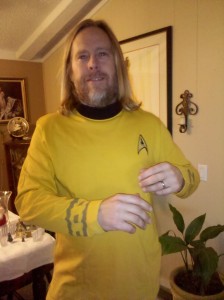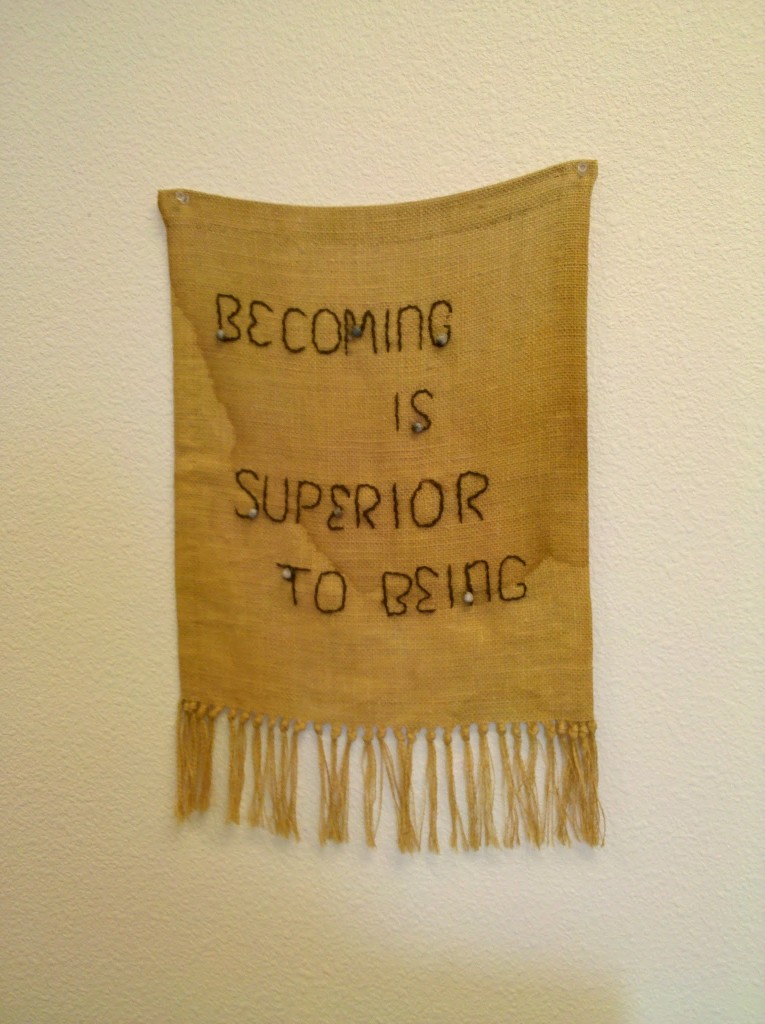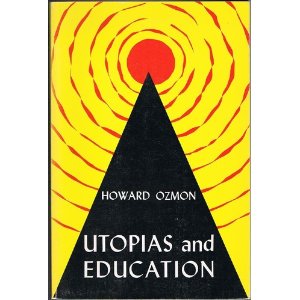26 years ago I dreamed up a college class. I was lucky to be attending a small liberal arts school where independent study was part of the norm, not the exception. Prescott College had 99 students when I started in early 1984. It was wonderful in all the right ways. Community, passion, exploration across miles and countries and cultures.
It was pretty clear when I started the journey there that what they were doing was closer to what I needed than what I had been doing in other academic settings. The background to the school and the dreams of the faculty clearly had a trajectory that I could be involved in and that it was not the end. The school itself was in the process of evolving into something greater.
Early on I read a lot of books about learning and I took some pretty awesome courses that certainly leaned toward the alternative. “Imagery in Learning,” “Alternative Methods in Higher Education,” and three weeks as a Teaching Assistant at a small college in Kansas were just a few of the classes I was able to live in and through. Really good stuff for me.
One of the classes I created was “Alternative and Utopian Philosophies of Education.” At Prescott College all classes were directed by student/teacher contracts. The contract consisted of a course description, broad goals, more specific objectives, and material needed for class. All classes utilized portfolios and writing heavily and the final evaluation for the course was a short narrative by both the instructor and the student. Prescott College also had a block schedule at that time. A fall, winter, and spring block, all three weeks long.
It was during a block I took my Utopian Philosophies class.
I have always loved science fiction, from TV and movies, to classic books I think the genre speaks to the dreamer in me. The part of me that knows some new future is coming and that we are in the process of creating it. Right now.
 It is not so much the technology aspect that I am most amazed by, it is the human space and the human connectedness ( or disconnectedness) that makes me want the world to find harmony and peace and all that other cool stuff. And I am forever interested in and seek improvement.
It is not so much the technology aspect that I am most amazed by, it is the human space and the human connectedness ( or disconnectedness) that makes me want the world to find harmony and peace and all that other cool stuff. And I am forever interested in and seek improvement.
Anyway, I have thought about the theme of science fiction in education a lot recently and was inspired enough to get a new prop in the form of a Captain Kirt shirt for future presentations and just a couple days later, a tweet by @bryanalexander pondering science fiction and education. He said he wanted to see the syllabus for the class and I told him I had something better. I am not sure this will wind up better, but at least for me it has kept me going down the path of pondering the application of being engaged in the “creation of science fiction” that I do think, is a sizable chunk of how we will get to where we are going.
Here is an aside regarding any syllabus and Bryan Alexander. A few years after my Prescott College experiences I went into the dusky and dirt filled basement of a home that I stored a good deal of the stuff I had acquired during much of my college career. I remember picking up the boxes and some of the bottoms broke out from the weight of books, journals, memorabilia of all kinds. I recall going through the boxes and finding that some of the journals I had created in school were damp and had been damaged by water. Below is one of the things I took from those boxes. My mom made it. You can see that water stains. I was shattered that so much had been lost.

I wonder if that event is why I am so fervent about getting students and faculty to get stuff online. Not that is is better, or really even more permanent, but I can bet out from under the house. And I think Science Fiction is about becoming, not being.
So below is a work in progress and a part of the presentation I had been scheming up about the time the science fiction thing was brought up in twitter. I have this plan to weave the theme of science fiction into a presentation about communication in learning and how we can make that work for us today. I have other props beside the shirt. I have a cardboard iPad with a leather strap like Spock’s Tricorder does. I have an old flip phone. I have an Advanced Copy of Oppenheimer’s, “An Open Mind.” And I have a broken flat panel computer monitor I will stand on to show that the circles in the transporter bay should have been rectangles because today we CAN transport ourselves through the monitors/phones we are looking into right now. I can’t wait to actually deliver the presentation. I used to wear a tye-dye shirt.
If you know all the authors at the start of the presentation, you win.
So what do I have for Bryan? Well, I do not have a syllabus but I have the final evaluation of the class. It is below. But first, a few words about a class called, “Utopian and Science Fiction Visions of Education.”
First, if anyone want to ponder the content of a class like that or dream one up, let me know. I would love to participate. My recollections of the class after 26 years are a little fuzzy, but I’ll try to describe some of what I do recall.
I remember drawing a school. I made it in color and spent a lot of time describing what the building were and how they were used. I remember being pretty interested in the “Mind, Body, Spirit” model and I am sure there was much room for playing.
I remember looking for quotes in books I had read years earlier that I thought I recalled conversations about schooling. I remember Lost Horizon by Hilton, Island by Huxley, Stranger in a Strange Land and Dune.  I do not remember many of the specifics, but I recall looking through the books and writing in my journal about the author’s ideas and how they might fit into the world of education. I read a book titled Utopias and Education. I recall nothing of it.
I do not remember many of the specifics, but I recall looking through the books and writing in my journal about the author’s ideas and how they might fit into the world of education. I read a book titled Utopias and Education. I recall nothing of it.
I was very interested about that time in Neuro-linguistics and was reading Sapir, Whithead. SI Hayakawa I think too. I included some of the educational theorists I admired at the time like Postman and Weingartner as readings for the class. I still admire those guys. A lot.
As part of the class I also went to Connecticut for the yearly Association for Experiential Education conference. I went to a few of those while I was at Prescott.
That is about it. I have here the evaluation I gave myself, short as it is, and the evaluation by my instructor. The real piece of the class was my journal which may have been damaged by water or thrown out or likely both. I don’t know. It was 26 years ago. I have become the future. Today I am most definitely in a world I would have had a hard time imagining. I would have had to have been something like a science fiction author to dream it up.
Oh, I can get most of the authors.
Frank Herbert.
Ayn Rand.
Arthur C Clarke (in Sri Lankan dress).
Heinlein.
[blank – not Tepper?]
Ursula LeGuin.
[blank – Leinster?]
Bradbury.
Vonnegut.
Ben Bova, I think.
Nice. Right on all but the Ben Bova.
You missed in order
Margaret Atwood
Jose Philip Farmer ( i love the image…)
and the last is Gene Roddenberry.
That is where the Star Trek Theme in the presentation comes from 🙂
Arg! I should have gotten all three. Esp Atwood, since I follow her on Twitter.
And there I was all gung-ho to see the syllabus. My comp lit dss was on citylit, which overlapped with utopian, albeit from the dystopian end of the spectrum.
Somewhere out there in cyberspace (a heterotopia?), there’s an academic Utopian Studies listserv / discussion group. Surely toxic tree houses and information silos in the EduVerse are dystopias.
Expanding the list somewhat, I’d add Rousseau, Islandia, perhaps a Bildungsroman (novel of development) or so, others (now I’ll be thinking about the list).
Your banner reminds of a German proverb about fatherhood that plays on being/becoming distinction but from the other direction – easier to become one than be one.
I have been thinking about the authors too. Who are they and what shall we learn?
Some pretty big events happened recently in our little group at work that were inspired, for me, by a single email with one sentence, “Can’t we dream a little?”
And I did and I acted. And after a bit of chopping wood, something good happened. A little dream and some work. How will we know what the right dream is? Will we ever?
I think one thing that stuck me about AS Neill was that he did the dream too. Certainly many others Montessori, Steiner, and Hahn have done the dream. Many of those folks shaped my thinking and my willingness to believe it can be done. I think that is a large part of the whole thing too. Are we willing to keep the dream in the face of great adversity?
So the syllabus will have not just the thinking, but the doing.
Sorry I did not have an actual syllabus. Maybe we are meant to create (become) one rather than than have (be) one?
Vanessa, do you mean http://www.h-net.org/~utopia/ ?
Nice post, Todd, from your mom’s fine banner to your cool vision of the future. Brave of you to share your eval. ” human space and the human connectedness” indeed.
Agreed on sf for becoming, rather than being. (I suspect most fantasy is more about the latter, and horror in between)
Thanks Bryan,
It was fun to look through the old class evaluations. Still so much that same. Moving forward. I hope.
I wonder how much SciFi, fantasy, and utopian reading help create my sense of “never good enough” mode of thinking. How do the types of books we read in our formative years shape who we are when we get older? Quite a bit I imagine.